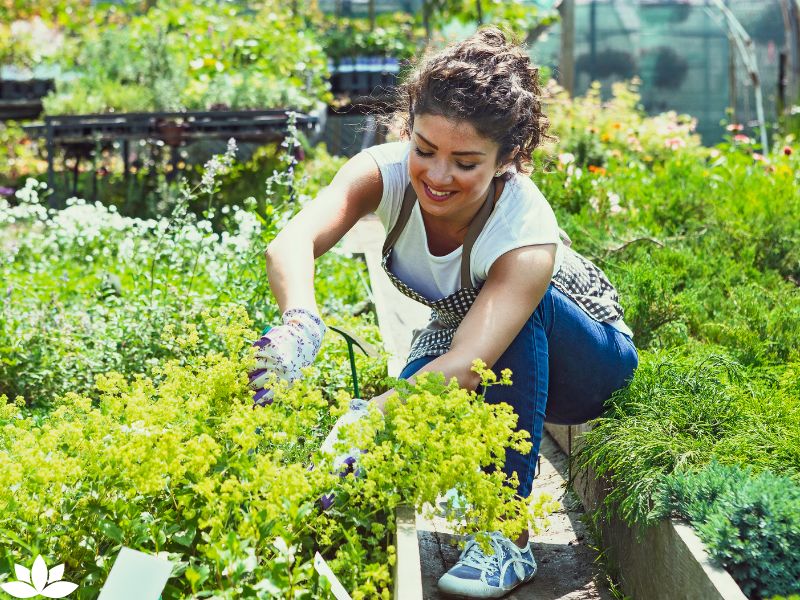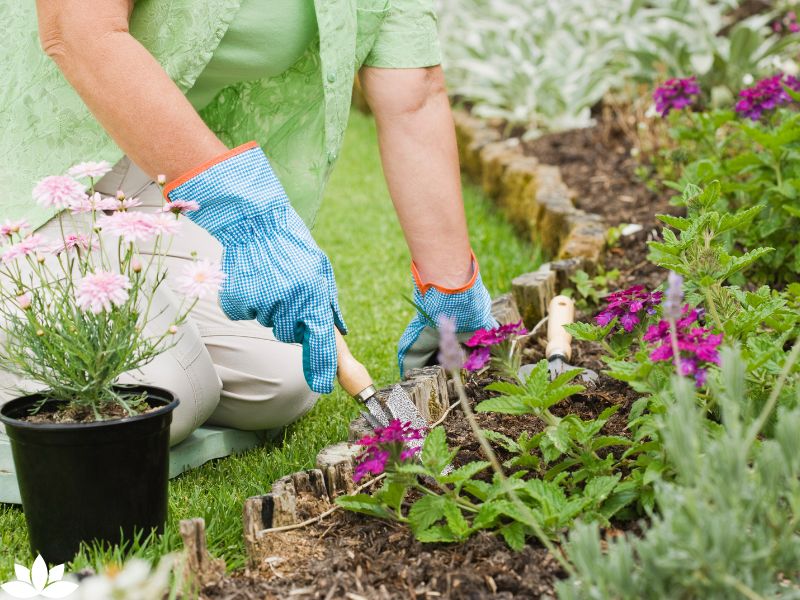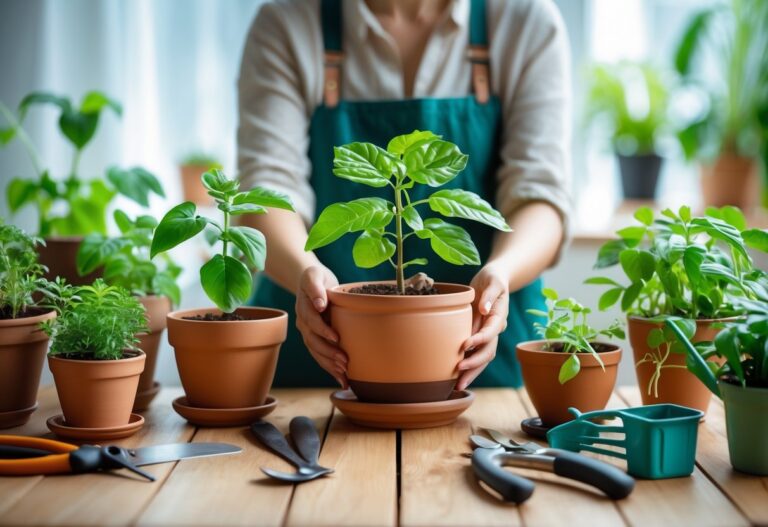Gardening, often regarded as a soul-soothing hobby, extends beyond the simple act of planting seeds and nurturing growth. It is an activity deeply intertwined with mindfulness, a state of intentional, focused awareness on the present moment. As mindfulness gains traction for its mental health benefits, gardening stands out as a perfect conduit for achieving a sense of tranquility and connection with our surroundings. This practice fosters not just the growth of plants, but also the cultivation of a calmer, more centered mind.
The essence of mindful gardening lies in its ability to anchor us in the present, away from the distractions and stresses of daily life. By tending to a garden, individuals engage all their senses—the sight of verdant foliage, the sound of rustling leaves, the feel of soil between fingers, the scent of blooming flowers, and even the taste of freshly picked produce. This multisensory experience facilitates a deep, meditative state where thoughts can settle, allowing an introspective calm to prevail.
Furthermore, mindful living through gardening encourages an appreciation for the natural cycles of life. Observing the gradual transformation from seed to sprout, and then to bloom, instills patience and cultivates a profound respect for nature’s rhythms. Such engagements foster a sense of responsibility and a symbiotic relationship with the environment, highlighting the interconnectedness of all living things.
As a hobby, gardening is celebrated not only for its ability to beautify spaces but also for its therapeutic impacts. It has been shown to reduce stress, alleviate symptoms of anxiety and depression, and enhance overall emotional well-being. The methodical process of nurturing plants can translate to personal growth, promoting a reflective mindset that can positively affect other areas of life. As we progress in embracing gardening as a mindful practice, we pave a path towards a more balanced and soul-nourishing lifestyle.
The Psychological Benefits of Gardening

Gardening is more than just a pleasant way to pass the time; it offers significant psychological benefits that contribute to overall well-being and mindful living. Immersing oneself in nature through gardening has been shown to reduce stress, enhance mood, and alleviate anxiety. According to research published in the Journal of Health Psychology, individuals who engage in gardening activities report a marked reduction in cortisol levels—a hormone associated with stress. This finding underscores the therapeutic potential of gardening as a soul-soothing hobby.
Another study conducted by the mental health charity Mind revealed that 80% of participants who gardened for 30 minutes experienced a notable improvement in their mood. This correlation suggests that gardening serves as a natural antidepressant, fostering a sense of accomplishment and purpose. The act of nurturing plants and watching them grow engenders a feeling of satisfaction, which can be particularly beneficial for individuals dealing with depression or anxiety.
The concept of ‘ecotherapy’ has gained traction in recent years, with experts advocating for engagement with nature to bolster mental health. Dr. Sue Stuart-Smith, a prominent psychiatrist, argues that gardening’s rhythmic and seasonal nature promotes mindfulness, helping individuals focus on the present moment. The tactile interaction with soil, plants, and sunlight stimulates the senses and cultivates a deeper connection to the earth, which is immensely calming.
Moreover, social benefits also abound in the realm of gardening. Community gardens provide a communal space where individuals can interact, share knowledge, and foster connections, effectively combating feelings of isolation. This social dimension is integral to mental health, as it reinforces a sense of belonging and community support.
In essence, gardening presents a multifaceted approach to mental wellness. By integrating this soul-soothing hobby into daily routines, one can experience significant psychological rewards, leading to a more balanced and mindful life. The interplay between nature and mental health is undeniable, and gardening stands as a testament to the profound benefits of engaging with the natural world.
Gardening as Physical Exercise

Gardening is often perceived primarily as a serene, soul-soothing hobby, but it also offers significant physical benefits. Engaging in various gardening activities can be an effective form of exercise, contributing to improved strength, stamina, and flexibility. By turning routine gardening tasks into opportunities for physical fitness, gardeners can enjoy a healthier, more active lifestyle.
Tilling the soil, for instance, serves as an excellent workout for the upper body, particularly the arms and shoulders. The repetitive motion of digging and turning soil helps to build muscle strength and endurance. Similarly, raking leaves or spreading mulch can tone muscles and improve cardiovascular health, much like traditional aerobic exercises.
Weeding is another gardening task that contributes to physical well-being. The frequent bending, squatting, and stretching required for weeding helps to maintain and enhance flexibility. It also targets multiple muscle groups, including the legs, back, and core, providing a balanced full-body workout. Gardeners often compare the physical demands of weeding to those of a session of yoga or pilates, both known for their flexibility and core-strengthening benefits.
Planting and transplanting are additional activities that can improve one’s physical fitness. These tasks necessitate lifting, carrying, and positioning plants, which in turn can enhance functional strength and balance. Moreover, the kneeling and standing involved in planting can further increase lower body strength.
Mowing the lawn and pruning shrubs offer similar physical advantages. Pushing a lawn mower, especially a non-motorized version, provides a robust cardiovascular workout while also improving leg strength. Pruning, on the other hand, requires precision and control, benefiting fine motor skills alongside upper body stamina.
Overall, gardening melds the nurturing of plants with personal physical enhancement, making it one of the most comprehensive and enjoyable ways to incorporate daily exercise into one’s routine. The act of gardening not only fosters a mindful living environment but also promotes a healthier, more physically active lifestyle.
Creating a therapeutic garden space involves a thoughtful blend of design elements that foster relaxation and mindfulness. Start with a well-planned layout that balances open areas with intimate nooks. Pathways should encourage slow, meandering strolls and be constructed with natural materials like gravel or wood chips to reinforce a connection with the earth. Integrating curved lines, as opposed to rigid geometrical shapes, can promote a sense of flow and tranquility.
The choice of plants plays a crucial role in crafting a serene environment. Select a variety of flora that appeals to the senses and thrives in the local climate. Fragrant plants such as lavender, jasmine, and rosemary can provide aromatic therapy, while visually soothing species like ferns, hostas, and ornamental grasses add texture and calmness. Utilize a mix of perennial and annual plants to ensure that your garden remains vibrant throughout the seasons.
Incorporating water features introduces another layer of tranquility through the gentle sound of flowing water. Consider adding a small pond, a fountain, or even a simple birdbath. The presence of water not only enhances the visual appeal but also attracts wildlife, promoting a sense of harmony with nature.
Seating areas are essential for meditation and reflection. Opt for comfortable, weather-resistant furniture placed in strategic locations where you can enjoy the sights and sounds of your garden. Hammocks, garden benches, or even a simple stone seat nestled among the greenery can invite relaxation. Ensure that these spots are shaded to provide respite during warmer days.
To complete your therapeutic garden space, incorporate elements that resonate with personal significance. This might include statues, wind chimes, or small sculptures that reflect your personality and preferences. The primary goal is to craft an environment that offers a soul-soothing retreat, making gardening not just a hobby but a rejuvenating experience that promotes mindful living.
Plants that Promote Relaxation and Mindfulness
Gardening is increasingly recognized as a soul-soothing hobby that promotes mindful living, offering a sanctuary of calm and relaxation. Certain plants are particularly effective in fostering this tranquil environment, known for their calming properties and benefits. Incorporating these plants into your garden can significantly enhance your overall well-being.
Lavender is one of the most popular choices for a relaxing garden. Its soothing fragrance has been shown to reduce anxiety and elevate mood. Lavender prefers well-drained soil and full sunlight. Pruning after the first bloom encourages a second, and regular harvesting keeps the plant healthy.
Chamomile, with its gentle, apple-scented blooms, is another excellent choice. Known for its calming effects, both the flowers and leaves can be used to prepare a relaxing tea. Chamomile thrives in full sunlight and needs regular watering, especially in dry periods. Its daisy-like flowers can also add a cheerful aesthetic to your garden.
Rosemary is not only a culinary favorite but also boasts calming properties and can improve cognitive function. Its aromatic, needle-like leaves release a soothing scent when brushed, making it a pleasing addition to any garden. Rosemary requires well-drained soil and full sun, and occasional trimming keeps it from becoming woody.
Beyond these herbs, other flora such as Jasmine and Aloe Vera can also contribute to a serene garden atmosphere. Jasmine’s sweet scent has been linked to improved sleep quality, while Aloe Vera is known for its air-purifying qualities and soothing gel, which can be harvested for skin care.
Planting these florae effectively involves some general tips: make sure the plants have adequate sunlight, water them according to their needs, and use well-drained soil. Regular maintenance, such as pruning and removing dead leaves, helps keep the garden vibrant and healthy.
By mindfully integrating these plants into your garden, you can create a tranquil space that not only looks beautiful but also serves as a sanctuary for relaxation and mindfulness—a testament to the soul-soothing power of gardening.
Incorporating Mindfulness Practices in Gardening

Integrating the principles of mindfulness into gardening can transform this everyday activity into a profoundly soul-soothing hobby. Mindful gardening emphasizes a deep connection between the gardener and the environment, encouraging a harmonious relationship that promotes both mental tranquility and physical well-being. Here are some practical techniques to cultivate mindfulness while tending to your garden.
Begin by practicing mindful breathing. Before starting your gardening tasks, take a moment to focus on your breath. Inhale deeply through your nose, filling your lungs completely, and exhale slowly through your mouth. This simple exercise helps center your mind, preparing you for a more present and attentive gardening experience. Repeat this mindful breathing whenever you find your mind wandering to refocus on the present moment.
Another essential aspect of mindful gardening is focused observation. As you engage with various gardening activities, such as planting, weeding, or watering, pay close attention to the details. Observe the textures of leaves, the scent of flowers, and the subtle sounds of insects bustling around. This immersive observation fosters a greater appreciation for the intricate beauty of nature and encourages a deeper sense of connection.
Sensory engagement is also pivotal in mindful gardening. Take the time to feel the soil with your hands, notice the warmth of the sun on your skin, and listen to the rustling of leaves in the breeze. Engaging all your senses helps ground you in the present and enhances your overall gardening experience, making it more enriching and restorative.
By incorporating these mindfulness practices, gardening transcends from a simple chore into a meditative activity that nurtures mental calmness and holistic well-being. Whether you are an experienced gardener or just starting, these mindful techniques can help you find profound solace and joy in your garden, turning it into an oasis for mindful living.
Gardening Activities for Mindful Living
Engaging in gardening can provide an enriching experience that promotes mindfulness and relaxation. Beginning with planting, the act of placing seeds or young plants into soil invites a tangible connection with nature. To start, select a quiet spot in your garden, prepare the soil by removing any debris, and gently dig a hole large enough for the root system of your plant. As you plant, focus on the texture of the soil, the smell of the earth, and the sensation of the plant transferring energy to the ground. This intentional practice can ground your senses and offer an opportunity to be present in the moment.
Pruning is another activity that can enhance mindful living. When trimming plants, attention to detail is critical. Before starting, observe the plant’s structure and note any dead or overgrown branches. Use sharp, clean shears to make precise cuts, promoting the plant’s overall health. Engage deeply with the activity by concentrating on the rhythm of the cuts and the shapes you are creating. This thoughtful engagement turns a routine task into a meditative experience, encouraging mindfulness while fostering the plant’s growth.
Weeding offers another avenue for mindfulness in gardening. Instead of viewing weeding as a chore, shift your perspective to see it as an opportunity to clear your mind. Begin by kneeling on a comfortable mat and slowly inspecting your garden beds. As you remove each weed, reflect on the energy the unwanted plant may have taken from your garden. With each pull, envision releasing tension and decluttering your mind, creating a space for calmness and clarity.
Finally, harvesting is a rewarding practice that completes the cycle of growth. Approach it with reverence and awareness. Select ripe fruits or vegetables, and gently twist or cut them from the plant. Take a moment to appreciate the nurturing process that led to their fruition. As you gather your harvest, consider the sounds, scents, and colors surrounding you, cultivating a mindful appreciation for the bounties your garden provides.
Integrating these specific gardening activities into your routine can transform gardening into a soul-soothing hobby. Each task, when performed with mindfulness, offers not only relaxation but also a deeper connection between oneself and nature.
Personal Stories and Testimonials
Gardening has long been celebrated as a soul-soothing hobby that can bring tranquility and mindful living into one’s life. Many individuals have experienced profound personal transformation through the simple acts of planting, nurturing, and harvesting. Let’s delve into real-life stories of people who have found solace and joy through gardening, illustrating the deep connection between humans and nature.
Jessica, a marketing executive, shares how gardening helped her cope with the pressures of her job. She notes, “After a long day filled with meetings and deadlines, spending time in my garden is like therapy. The rhythm of planting and watering brings a sense of peace that’s hard to find elsewhere.” For Jessica, the mindful aspect of gardening, where she focuses entirely on the present moment, has become a critical part of her daily routine, offering her a sanctuary from the stress of her work life.
Similarly, Mark, a retired schoolteacher, discovered the joy of gardening after decades of a busy career. He explains, “Gardening has given me purpose in retirement. Watching my plants grow and bloom brings immense joy. It’s a way to keep my mind engaged and my body active.” For Mark, this soul-soothing hobby goes beyond just a pastime; it has become instrumental in fostering a sense of fulfillment and mindfulness in his golden years.
Alice, a mother of two, found that gardening provided a unique way to bond with her children while teaching them about nature and patience. She remarks, “We started with a small vegetable patch, and it’s amazing how much it’s brought us together as a family. My kids love spending time outdoors, and it’s a wonderful way for them to learn responsibility and the value of hard work.” Through gardening, Alice has cultivated not just plants, but also invaluable life lessons and closer family ties.
These personal stories highlight how gardening can be a powerful tool for mindful living. It offers not only a productive way to engage with nature but also a meaningful way to achieve mental peace and emotional well-being. These testimonials endorse the transformative power of gardening, reminding us of its timeless allure and profound benefits.



